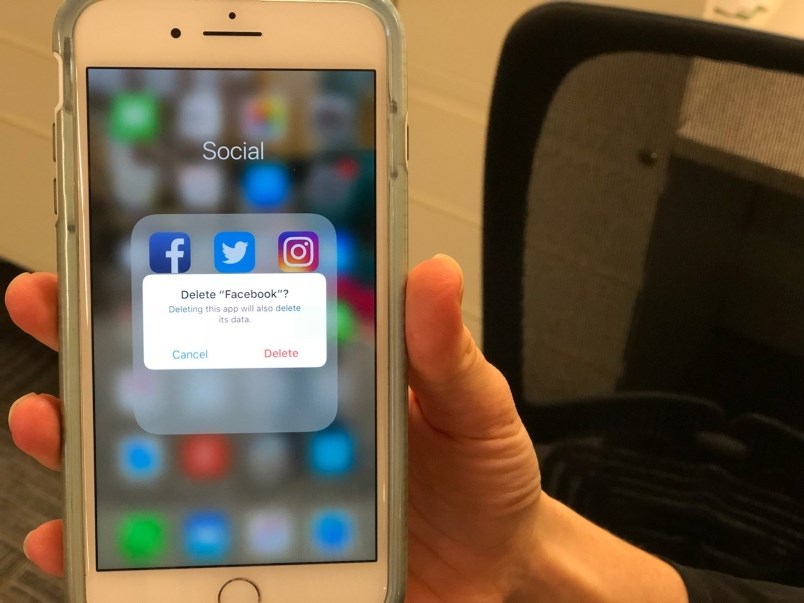During Speech and Hearing month, Speech and Hearing BC has launched a campaign in May to encourage screen-free family time.
Parents may be aware of the risks associated with excessive screen time for kids, yet 85 per cent of Canadian children under five spend more time on devices than suggested guidelines, according to stats provided by the association.
For young children, excessive interactions with phones or tablets is linked with significant language delays and even lifelong learning difficulties.
This May, Speech and Hearing BC launches Talk Spot to combat this: a province-wide advocacy campaign encouraging face-to-face interaction amongst parents and children.
“In-person conversations have immensely positive effects on a child’s cognitive development, increasing their vocabulary and language understanding up to six times more than passive communication alone,” said Becca Yu, a speech-language pathologist and director of public education for Speech and Hearing BC.
“That’s more effective than reading a book. Our goal is to ensure that all parents and caregivers throughout the province have the knowledge to help their kids thrive.”
Children who experience consistent and diverse communication can perform more than two years ahead of their peers in verbal and memory skills by the age of five.
There’s a reason for this. According to Dr. Jenny Radesky, assistant professor of developmental behavioral pediatrics at the University of Michigan, “Even if (children) can mimic what they see on the screen, they can’t always transfer that to the real world and the rest of their lives. (This) is something that apps haven’t been able to overcome, no matter how interactive they are.”
Speech and Hearing BC is a not-for-profit of more than 1,200 licensed speech-language pathologists and audiologists committed to improving communication health for British Columbians. They provide information resources, advocacy and professional support to people of all ages.
Members provide assessment and treatment to individuals who are experiencing problems with their speech, language, hearing, voice, swallowing, fluency or social communication. They are almost entirely volunteer run.
That all sounds fine, but what does it mean for a busy parent? It’s a question of developing habits of direct communication right from the start.
Talk to your newborn. I know it sometimes seems weird but gab away about what you’re doing: (“OK, now we’re going to get a nice clean diaper for you. Doesn’t that feel comfortable?”)
Let’s face it, you’re going to be changing, bathing, feeding and dressing your infant so it’s pretty simple to chat while you’re doing it. Pretty soon it will become automatic. I recommend that you avoid baby talk and use proper grammar right from the start.
In the car, talk about what you’re seeing and where you’re going. When they start to talk you’ll be amazed at what they have actually taken in.
I remember being in the car with my newly verbal grandchildren when I heard from the backseat, “Stop Grandma. Red means stop.” And here when we’d been driving around the city I thought I was talking to the air. But no, they were listening and learning all the time.
Mealtimes are a classic time for conversation. The trick is to make it a conversation, not an inquisition. When we batter our children with questions about their schoolwork, friends, social activities and the like they have no interest in chatting.
If you sat at the table and were immediately quizzed on how you did at work, were you polite to the boss, did you eat all your lunch, etc., how keen would you be to participate? But an open-ended question such as, “What was the best thing about school today?” just may get some conversation going.
Even better are less personal topics such as the flowers blooming in the garden or some special activity planned for the weekend.
The more you chat the more they will participate and soon those pesky screens will only be a small part of their lives.
Kathy Lynn is a parenting expert who is a professional speaker and author of Vive la Différence, Who’s In Charge Anyway? and But Nobody Told Me I’d Ever Have to Leave Home. If you want to read more, sign up for her informational newsletter at parentingtoday.ca.



